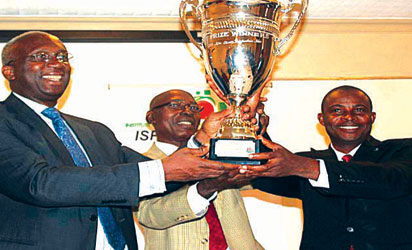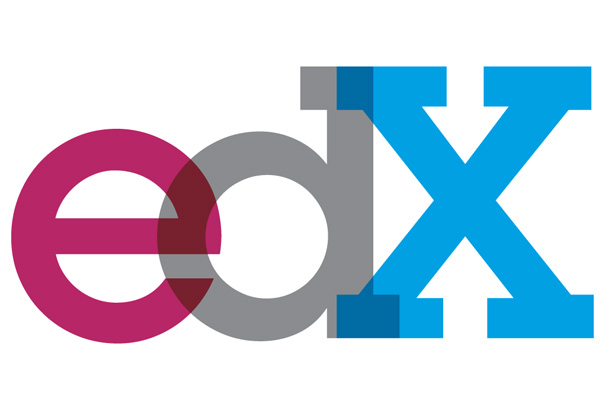Software Nigeria Cannot wait
By Chris Uwaje
Yesterday, we were told that it will take us 2,000 years to locally refine crude oil into petroleum and develop a Bomb – but we did that within few months during the Nigerian civil war and came out with “Ogbinigwe” a bomb with much dynamism and superiority than other inventions! Lessons learned dictates that we must belief in ourselves and indeed in our collective knowledge and wisdom.
Today, Nigeria Software and by extension, software developed in Africa and by Africans has arrived and cannot wait for anyone but move on and positively explode to add unprecedented value to governance and economy! Software is life and constructive expression of creative logic, innovation and productive independence in the information centric knowledge society. Currently, we live in a world where 3,000 books with heavy knowledge stuffs are produced daily (e-book inclusive), where Nigerian Mobile phone ownership and subscription rate has surpassed the 110million threshold and where Nollywood is sleeplessly scripting globally competitive storylines and producing breath-taking movies. Telling our story ourselves, competing and promoting our knowledge culture globally is the reality of human development and creation of wealth.
Therefore, anyone, (government, investors, market forces etc.) who neglects to recognize the power and emerging business numbers of Software-Nigeria (Nigeria Developed Software) is missing out on a significant aspect of the entrepreneurship bottom-line required for engaging the opportunities of Information Society (IS). For this and other cogent reasons, Software-Nigeria can’t wait. No we cannot wait; not for India, USA, Europe or indeed, for any other country for that matter! We must define our own model and forge our software identity and move on – and the time is now, before the Cloud, and yes we can.
Global IT spending will hit USD$3.73trillion in 2013 – according to Gartner Inc. Also, Software spending will reach $158billion by 2016. This translates to the fact that we now live in a ‘Software-First World’ where Nigeria’s future resides. Meanwhile, the recent United Nations (UNCTAD) Information Economy Report 2012 on “The Software Industry and Developing Countries”, has rightly recognized Software as not only fundamental, but critical to National Development and Security but also for National Prosperity and survivability.
The critical infrastructure and economy of modern nation is largely controlled and managed by software. In short, software has become a prime and critical national resource, vital to national well being, sustainable development, creation of wealth and global competitiveness. The recent UN studies therefore rightly emphasized that ‘Software’s Critical Role Raises Fundamental National Issues’. This has necessitated the accelerated involvement of government of most nations in the WSIS program agenda. The study further observed that nation’s dependency on software raises national issues and challenges that must be addressed in a coherent manner.
While ISPON continues to serve as the chief software advocate of Nigeria (CSAN), we also submit that the Software Industry can become an alternative to Oil – with respect to revenue generation and wealth creation. We are therefore concerned about the current alarming rate of national technophobia and in particular, the visible ignorance about the critical and significance role of Software in 21st Century National global development. By all indications, Software Technology can become a very feasible alternative to our national Oil revenue generation – currently put at about $12billion a year. The key benefit of a vibrant Software Industry is in producing more knowledgeable and better-skilled human capital for nation building. It is unacceptable therefore, that with well over USD$54billion Software Revenue generation India Software export revenue is more than 400% of what Nigeria generates from Oil annually. This is another reason why Software-Nigeria cannot wait for anyone. This is the time to move on and move on very fast we must.
Indeed, the data for the fiscal year 2011 – including revenue from both domestic and export markets of global Software market, vividly demonstrates that Software-Nigeria maybe our last hope and indeed, the bridge to our sustainable development. India’s Revenue from exports grew 29 percent to $40.4 billion during this period, while revenue from the domestic market grew by 26 percent to $11.6 billion. Today, the development, application and use of Software has boosted productivity, created new jobs, enabled more efficient businesses, produced higher quality of goods and services, and led to greater global innovation, standards and best practices. The emergence of the Software revolution has enhanced the quality of life from improving health care, agriculture, communication, education, Art and Culture, to promoting greater transparency, to making it easier for government, business and humanity to interact with one another and above all, to promoting world peace. Software has therefore become – and will remain for a long time – one of the fastest growing industries with the power to enrich and sustain national economies. Global projection and current assessment reveals that IT spending exceeded four trillion US dollars in 2009. Issue is how much did Nigeria spend and how much did she earn? And ISPON continues to assert today, more than ever before, that software technology and the internet, with characteristically low physical entry barriers and high local value-added, offer newly industrialising countries a chance to quantum leapfrog. Unfortunately, the industry has been unsuccessful in attracting the attention of policy makers/government and the financial services sector largely because of the ease with which the players in those sector could return in some cases 400% value on investment through financial engineering and trading in government funds.
Fundamental issues of major concern to Nigeria and the President Goodluck Jonathan’s transformation agenda should include but not limited to: a. Understanding the value that software adds to the nation’s economy; b. Ensuring national competitiveness in the global software marketplace; c. Meeting public needs for trustworthiness in critical software systems; d. Ensuring the necessary degree of security and e. privacy in information systems; f. Educating and training the current and future software workforce; g. Ensuring qualifications and competency of software profcessionals; h. Protecting intellectual property and preventing software piracy; i. Defining executive and effective agenda for software research and investment; j. Addressing the National Software issues. It is in recognition of the above challenges that the United Nations University – International Institute for Software Technology (IIST) initiated its Software Advanced Development Project – particularly focused in assisting Developing Countries. Software Nigeria cannot and must not wait for anyone to define her 21st century development mission.
About the Author
Chris Uwaje: Known as the Oracle of the Nigerian IT Industry, Pioneered the conceptualization Framework and content drafting strategy for the establishment of the National Information Technology Development Policy for Nigeria. He is the former Regional Director for D-link International – West Africa. In 2008 he was crowned the IT Personality of the year. He has presented many IT conference papers at home and abroad. He is a speaker of international repute. Uwaje, who is very passionate about youth empowerment through ICT, before now, was the Principal Consultant and Chief Executive Officer of Connect Technologies Limited, (Developers of E-Government Solutions, Enterprise Banker Enterprise, Enterprise Knowledge Intelligence Groupware & Enterprise Cooperative Financials Application).He is an expert in Software Design and Engineering Solutions; Research, Design and Development (RD&D). His special professional focus: National & Regional IT Strategy and Policy; Coordinating Chairman, Council for West Africa Information Technology Professionals (CWAITP).President Cybersecurity NGO Global Network for Cybersolution, Past President of Information Technology Association of Nigeria (ITAN) and President of Institute of Software Practitioners of Nigeria (ISPON).Member, National Inter-Ministerial Committee on Software Development, Council Member, Computer Professional Registration Council of Nigeria. (CPN). Foundation Member, National Software Development Initiative (NSDI), Member, National Outsourcing Initiative by the Federal Government of Nigeria.He is a distinguished Fellow of Nigeria Computer Society (NCS), Fellow: Institute of Analysts and Programmers. U.K. Fellow: Institute of Certified Professional of UK; Former Council Member: Nigeria Computer Society (NCS). Pioneer Past President Global Network for Cyber Solution (NGO on Cybersecurity and Cybercrime Chris Uwaje is reputed for his numerous articles concerning national and International issues on ICT.





